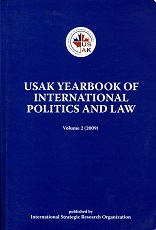The Changing Policy of the European Union Towards Free Trade Agreements and Its Effects on Turkish Foreign Trade: A Political Economy Perspective
The Changing Policy of the European Union Towards Free Trade Agreements and Its Effects on Turkish Foreign Trade: A Political Economy Perspective
Author(s): Mustafa KutlaySubject(s): Politics / Political Sciences
Published by: USAK (Uluslararası Stratejik Araştırmalar Kurumu)
Keywords: Multilateralism; Bilateralism; FTAs; EU Trade Policy; EU-Turkey Customs Union
Summary/Abstract: The EU has traditionally been one of the most decisive supporters of multilateralism. Especially after Uruguay Round, she almost exclusively concentrated on WTO negotiations. Throughout the negotiations under WTO, even under the most stressed conditions, the EU backed multilateralism. Nevertheless, due to internal and external reasons, she started to veer her route toward bilateralism after a Communication published in 2006. Recently, she has concentrated on the Asian markets with particular reference to South Korea, ASEAN countries and India and started FTA negotiations with them. Since the EU is the most important trading bloc in the world, the change in her trade orientation inescapably affects the third countries that have special relations with the Union. Turkey, as a country that established a customs union without being a member of the EU, is one of the most illuminating cases, in this regard. Possible FTAs between the EU and South Korea, India, and ASEAN countries have the risk to deteriorate Turkish producers’ competitiveness and create trade deflection in the medium-term. In this context, two scenarios are drawn in this article, and it is concluded that in the ‘loose integration’ scenario, which is the most likely one, the negative effects of these agreements to Turkish economy might be less severe than anticipated.
Journal: USAK Yearbook of Politics and International Relations
- Issue Year: 2009
- Issue No: 2
- Page Range: 117-132
- Page Count: 16
- Language: English

